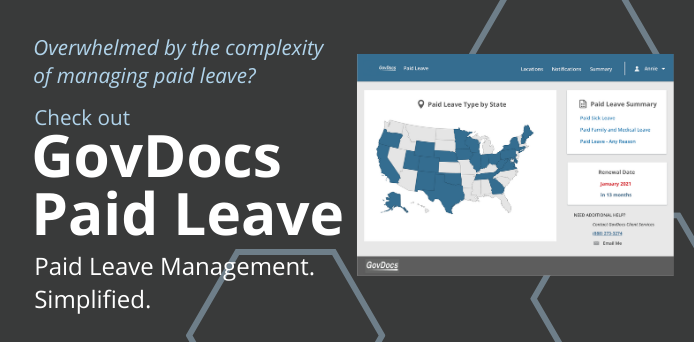EMPLOYMENT LAW NEWS
Illinois Pay Transparency Law
By Kris Janisch
Published June 28, 2023

Plus, because the legislation specifically includes third-party vendors, employers that use these organizations should ensure they provide the correct pay scale and benefit information to remain compliant under an Illinois pay transparency law.
A new Illinois pay transparency law appears to be at hand.
Both chambers of the Illinois General Assembly recently passed the bill, which would amend the state’s Equal Pay Act of 2003.
It would apply to employers with 15 or more workers and go into effect Jan. 1, 2025.
The Illinois pay transparency bill was sent to Gov. J.B. Pritzker in mid-June 2023. He has not signed it as of this writing, but he is expected to do so. (Remember, though, that it did take some time for the governor to sign the recent Illinois paid leave for any reason bill.)
UPDATE: The law is now live.
Pay Transparency Laws by State
Illinois Pay Transparency Law
Like a handful of other pay transparency laws, the Illinois pay transparency law would require employers to include a good-faith estimate of the pay scale and benefits in any job posting.
“Pay scale and benefits” under the language of the legislation means:
The wage or salary, or the wage or salary range, and a general description of the benefits and other compensation, including, but not limited to, bonuses, stock options, or other incentives the employer reasonably expects in good faith to offer for the position, set by reference to any applicable pay scale, the previously determined range for the position, the actual range of others currently holding equivalent positions, or the budgeted amount for the position, as applicable.
It is notable that this requirement could be satisfied in electronic job posts by including a link to a public page with the pay scale and benefits information.
Also, the Illinois pay transparency law would apply to third-party vendors, which would be liable for noncompliance, unless the group could demonstrate the employer did not adequately provide the information.
Meanwhile, promotional opportunities would need to be made known to existing employees no later than 14 calendar days after an employer creates an external job posting (in most instances). This section of the bill only applies to jobs that will be:
- Physically performed, at least in part, in Illinois
- Physically performed outside of the state but the employee reports to “a supervisor, office, or other work site in Illinois”
Other provisions under the Illinois pay transparency law include:
- Employers are not required to create a job posting
- Employers are allowed to ask applicants about their wage or salary expectations
- For jobs that aren’t posted internally or externally, employers must provide pay scale and benefits information prior to any offer or discussion of compensation — and at the applicant’s request
- Existing employees in jobs deemed “exempt from competitive selection” by the State of Illinois are excepted from the employer requirement for internal postings (outlined above)
Illinois Pay Transparency Law: Fines and Penalties
The bill calls for anti-retaliation provisions and allows the Illinois Department of Labor to levy heavy fines for noncompliance — up to $10,000 for repeat violators.
Lastly, employers should note that Illinois already has a salary history ban in place.
Legalized Marijuana in Illinois: What Employers Need to Know
Pay Transparency Laws
While only a handful of jurisdictions have pay transparency laws that apply to job postings, dozens of others have some form of pay transparency on the books.
These types of laws can require employers to:
- Provide salary range information to applicants by the time they extend an offer of compensation — even if the applicant did not request it
- Give employees the salary range upon hire, when changing jobs and upon request
- Disclose the salary range to applicants who have completed an interview for the position
Along with the introduction of a federal pay transparency bill, this growing area of employment law has also come up in the news of late and in popular posts on LinkedIn. Some employers have looked to skirt the requirements of these laws with language acrobatics, which could lead to additional guidance for existing laws in the future.
Clearly, lawmakers are increasingly making pay transparency a priority, and it seems likely more legislation will come down the pipeline in the future.
Webinar Recording: Clear as Mud – How to Comply with Pay Transparency Laws
Conclusion: Illinois Pay Transparency Law
Employers with locations in the Land of Lincoln should keep an eye out for the Illinois pay transparency law. (Most observers believe he will eventually sign it.)
Plus, because the legislation specifically includes third-party vendors, employers that use these organizations should ensure they provide the correct pay scale and benefit information to remain compliant.
Fortunately, it would not go into effect until Jan. 1, 2025, and only apply to job postings on or after that date. So, employers with 15 or more employees or more have some time to prepare for changes to their practices should it become law.
This Employment Law News blog is intended for market awareness only, it is not to be used for legal advice or counsel.
Keep Informed
with GovDocs Employment Law News
Who is GovDocs?
GovDocs simplifies employment law compliance for large employers in the U.S. and Canada. The GovDocs software platform integrates three solutions in one convenient place to help you master the employment laws impacting your business. Whether you manage a labor law posters, minimum wage or paid leave program, our products cut through research time, provide proactive insights into the everchanging landscape of employment laws and reduce the risk of noncompliance. The company is headquartered in Eagan, Minn.
The GovDocs Poster Store simplifies posting compliance for employers with less than 30 locations across all industries, offering a variety of posting products to meet your labor law compliance needs.





